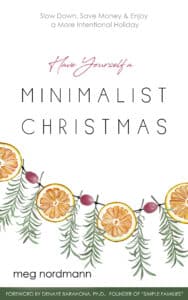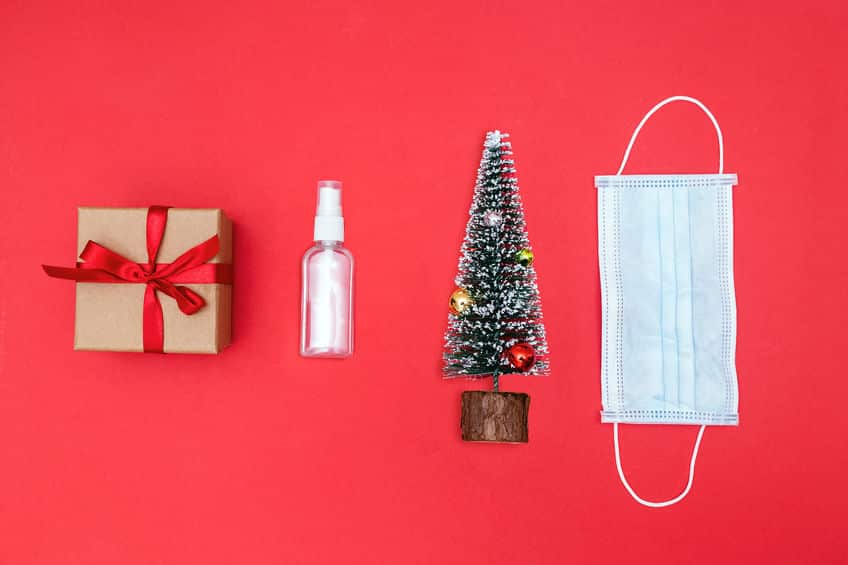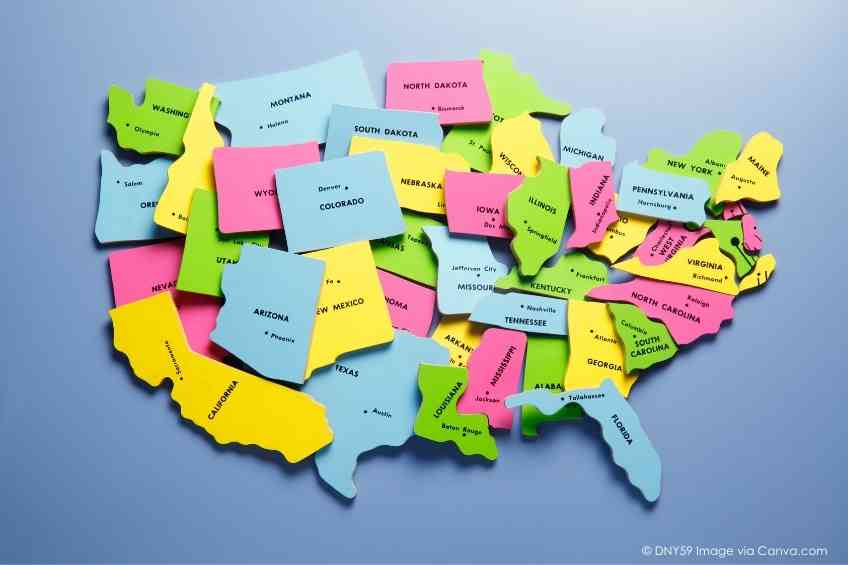You don’t need to be Clark Griswold to know that Christmas is stressful. But even Sparky would shutter at the ongoing challenges this holiday season presents from the continuing presence of COVID to political and family rancor, supply chain problems and, gasp, a potential Christmas tree shortage. Regardless, maybe the Griswold family’s biggest problem was trying to do too much too often. Meg Nordmann, author of Have Yourself A Minimalist Christmas: Slow Down, Save Money & Enjoy A More Intentional Holiday, certainly believes so. She recently spoke with WellWell about misconceptions towards minimalism and how the lifestyle can help relieve holiday stress and pressure, especially this year.
What actually is minimalism?
I think it’s subjective. To me, minimalism is more about the lifestyle philosophy and less about aesthetics. I know some interior designers refer to minimalism as a certain style but that’s what it’s about for me. It’s about cutting the excess and pairing items down to what you truly need and what actually brings value to your household with maybe a handful of items purely to spark joy. You just need to scale back and slow down your purchasing to focus on mostly essentials.
How do you balance that decision to limit purchases and not succumb to the excessive consumerism of Christmas with the expectations of others, like children or relatives who may expect more from the holiday?
First, I think setting expectations in advance is super important. I adopt a four-gift rule and I let my child know in advance there will be only four gifts. The obvious hurdle is the story we’ve crafted around Santa Claus that suggests anything you want, Santa will bring. But I just tell my child the rule comes from Santa and it works out. It also allows us to give our four gifts from Santa, four from us as parents, and add the extended family, there’s still plenty of gifts and toys being given but it doesn’t get out of hand. Anyone can craft guidelines and parameters that uniquely fit their family and communicating them early is crucial.
In Chapter 2 of Have Yourself A Minimalist Christmas you mention you’re shifting away a bit from the Santa Claus story and its relationship to Christmas. Why is that?
We have tried to shift away from the story of Santa in our household. I’m not a Scrooge, I absolutely love the magic around Christmas, I love the magic of the anticipation of Christmas morning and that idea that there are reindeer on our rooftop on Christmas Eve, it’s magical. But where I have a problem is how the story of Santa was crafted. The fact is it was created by advertising executives that worked for big shopping malls and big corporations, like Coca Cola for example. The Santa character is less than 200 years old, Rudolph and Frosty are less than 75 and the Elf on a Shelf is 15 years old. These are relatively new stories, crafted by marketing people to encourage you to buy more. They’re not necessarily requirements of the holiday.
What issues does that story cause?
It creates an unfulfillable desire. When we talk to children around Christmas, we ask, “What do you want Santa to bring you?” We give them a piece of paper to list everything they want, and it’s expected they’ll get everything. Santa will bring them whatever they ask for. It doesn’t create a healthy balance between wants and needs. And so, rather than focusing so much on the list-making and all of those wants, we aim and focus back on traditions and experiences together as a family through spiritual practices, charity, or quality time together. There are so many wonderful things that you can focus on that more genuinely represent the holiday spirit all throughout the month. Then Christmas morning with all the gifts is more of a bonus rather than the entire point of Christmas.
Do you think this is an ideal time for families to pick up Minimalist Christmas and to give it a shot given all the uncertainty and rancor floating about?
Absolutely. There are several reasons why minimalism is a good thing to adopt right now given the current climate. One, there’s a lot of financial instability. It may feel overwhelming if it’s completely full of items that are cluttering. There’s never been a better time to reorganize and dispose of things you really don’t need. There’s been plenty of studies that show this time of action can be quite therapeutic, it can help you feel like you’re in control and destress.
Are there any minimalist strategies we can apply beyond Christmas, maybe to financial situations given that there are many people who are unemployed?
Of course. Decluttering is one. The act of decluttering itself can help curb unnecessary spending. When you go through your entire house or apartment, touch every single item you own, pull everything out of the closet, pile it onto the bed and take inventory of all your belongings you’ll have some eye-opening discovering. You’ll find you have duplicates, items that are redundant, things you long thought lost but overall, you’ll see just how much you have you don’t really need or use. It can be a painful exercise, but it’ll help curb your appetite for shopping. And if you sell the stuff you’re getting rid of, you could make some money.


About Meg Nordmann
Meg Nordmann is a former journalist, editor and digital marketer turned full-time mother who writes, blogs, and speaks about minimalism and frugalism. She is the author of Have Yourself A Minimalist Christmas: Slow Down, Save Money & Enjoy A More Intentional Holiday.
Learn more at megnordmann.com / Instagram: @megnordmann
Have Yourself A Minimalist Christmas: Slow Down, Save Money & Enjoy A More Intentional Holiday can be purchased at Amazon.













